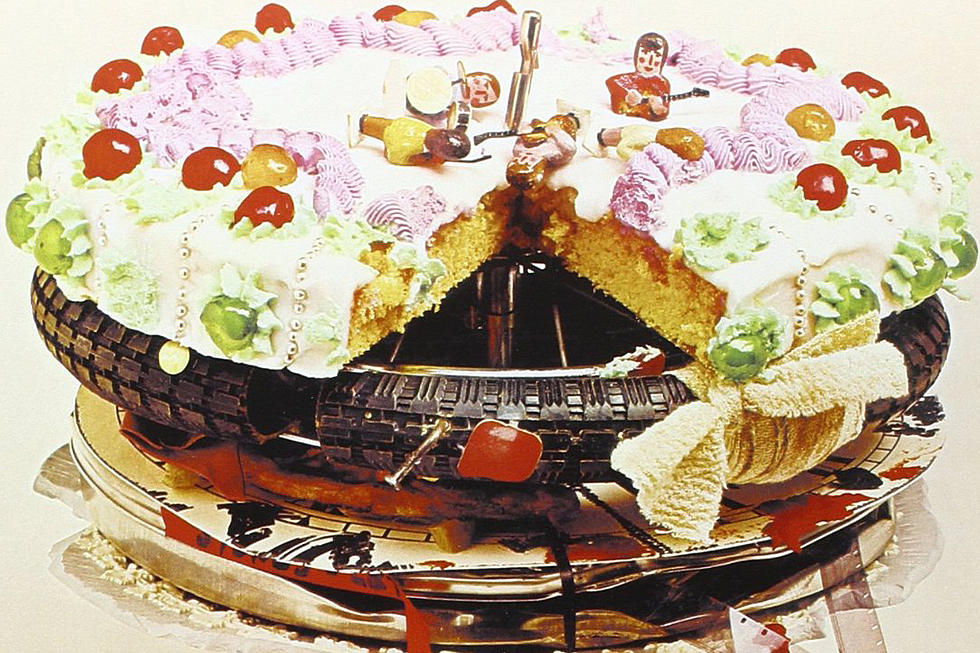
How the Rolling Stones Said Goodbye to the ’60s on ‘Let It Bleed’
Just as John F. Kennedy's assassination in 1963 put an end to the '50s, Richard Nixon's resignation in 1974 ended the '60s. But the Rolling Stones put an end to the decade five years earlier when they released Let It Bleed – their eighth album, and last one of the '60s – on Nov. 28, 1969.
The Stones didn't need a political catastrophe to signal the end of the decade that gave us both the Summer of Love and Vietnam. They were prepared for the end, and it wasn't pretty. You can hear it in the gloomy, violent and desolate grooves of Let It Bleed, the title itself a harbinger of the album's moody and blood-soaked music.
Days after the record's release, the Rolling Stones would play a free concert at the Altamont Speedway in California that ended in a murder in front of the stage. Let It Bleed seemed to foretell this in its dark and grim songs. There's no escaping the apocalyptic nature of one of the Rolling Stones' best albums, and there's no shelter from the storm of discontent the '70s were blowing in.
The band began recording the album in February, a couple of months after the release of Beggars Banquet, though they started work on Let It Bleed's centerpiece, "You Can't Always Get What You Want," back in November 1968, right before Beggars Banquet came out. For the next nine months, they toiled in London's Olympic Studios, pulling together some of their best songs for one of their greatest projects and one of the most defining records of the era.
But it wasn't easy. Founding member Brian Jones had been moving away from the rest of the group, which had grown weary of his erratic behavior and missed sessions.
Listen to the Rolling Stones' 'Gimme Shelter'
In June, he was asked to leave the group. He ended up playing on only two of the album's cuts – "You Got the Silver" (on which he plays autoharp) and "Midnight Rambler" (he supplies some percussion) – before his death on July 3.
His eventual replacement, Mick Taylor, was brought in to play guitar on "Country Honk" and "Live With Me." Other musicians were juggled throughout the sessions, as well, including keyboardists Nicky Hopkins and Ian Stewart, guitarist Ry Cooder, saxophonist Bobby Keys, Al Kooper, Leon Russell and, most famously, Merry Clayton, who sang the soaring vocal part on "Gimme Shelter." Plus, the London Bach Choir was hauled in to add heft to "You Can't Always Get What You Want."
Somehow, even with all this going on, the record manages to instill an overwhelming sense of dread, claustrophobia and despair into all nine of its songs.
From the opening typhoon of "Gimme Shelter" – "A storm is threatening my very life today," sings Mick Jagger from the outset – to the closing assault of horn, organ, percussion and choir on "You Can't Always Get What You Want," Let It Bleed is the sound of an era coming to a close, with an underlying fear of what's waiting around the corner.
There was no telling, but from the sound of things on the album's best songs – "Gimme Shelter," "Monkey Man," "You Can't Always Get What You Want" – it wasn't going to be easy. The murder fantasy "Midnight Rambler," the "Honky Tonk Women" rewrite "Country Honk," "You Got the Silver," the first full song to feature Keith Richards on lead vocals – all are immersed in layers of anguish and unease. It's sexy, dirty, scary and on the verge of collapsing under the weight of impending doom.
Listen to the Rolling Stones' 'Midnight Rambler'
And it's a brilliant work by a band at its absolute peak. The Rolling Stones followed Let It Bleed with Sticky Fingers and then Exile on Main St., two of rock's all-time greatest albums. The progression from Beggars Banquet up through 1972's Exile charts a band growing into and out of itself.
Elements of each record find their way into the others, from the bluesy sway that dominates Beggars and appears elsewhere (including on Let It Bleed) to the druggy aftermath of the '60s that seeps into Bleed and completely takes over Exile. Let It Bleed is the middle link holding it all together.
The album made it to No. 3 on the Billboard album chart; the group's next eight albums – starting with 1971's Sticky Fingers and ending a decade later with Tattoo You – all reached No. 1. No singles were pulled from the album at the time. "You Can't Always Get What You Want," originally the B-side of the "Honky Tonk Women" single, was belatedly released in 1973 and just missed the Top 40.
All these years later, Let It Bleed still sounds like an album made during turbulent times. You don't have to know what was going on at the end of the '60s to get that something bad was happening, but it certainly helps to put all of that apocalyptic dread into perspective. Most everyone else bid farewell to the decade sometime in the early '70s; the Rolling Stones got there early. And from the sound of things, they were more than happy to see it go.
Top 10 'Leftovers' Albums
Gallery Credit: Bryan Wawzenek
More From KYBB-FM / B102.7










